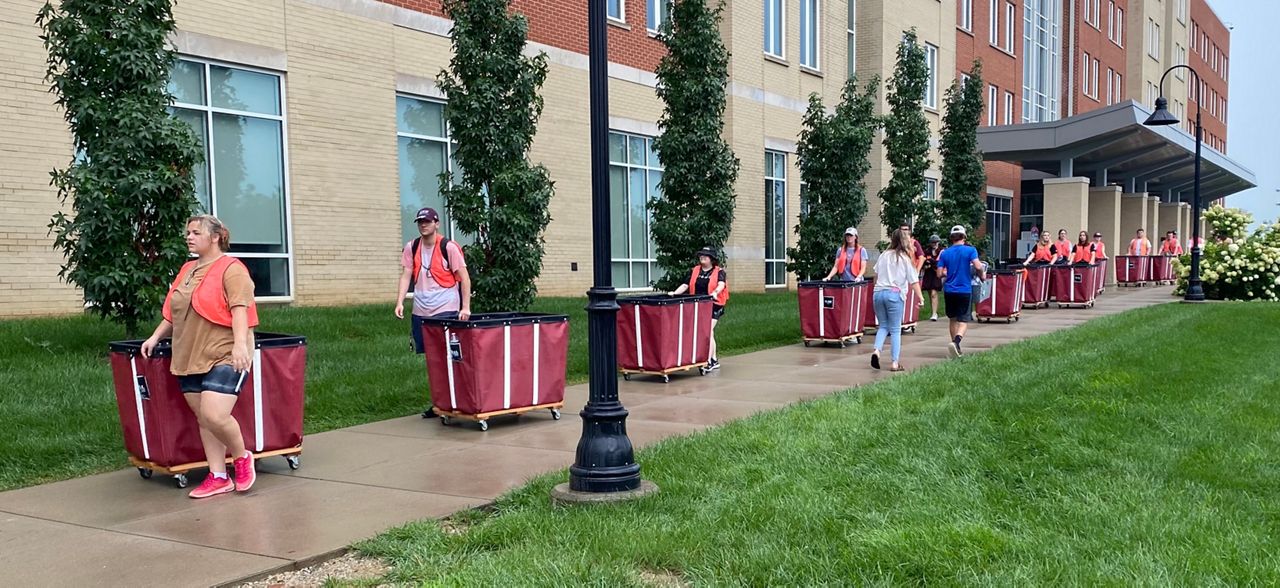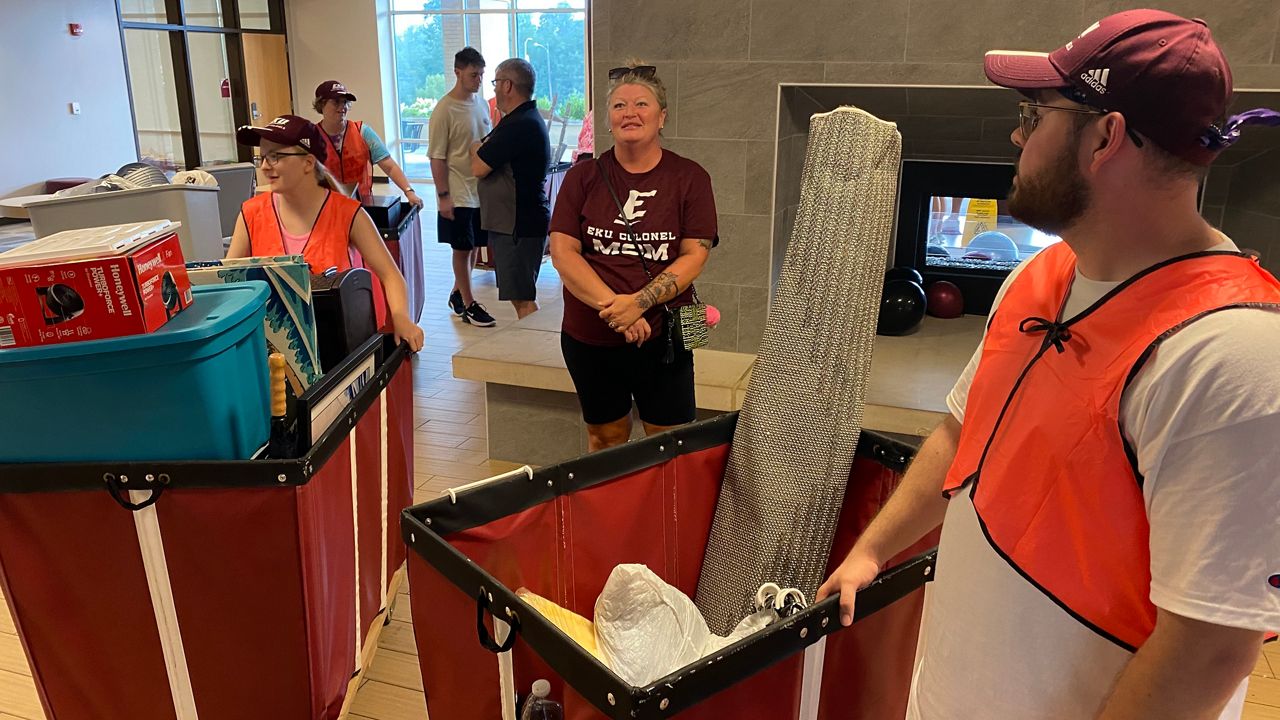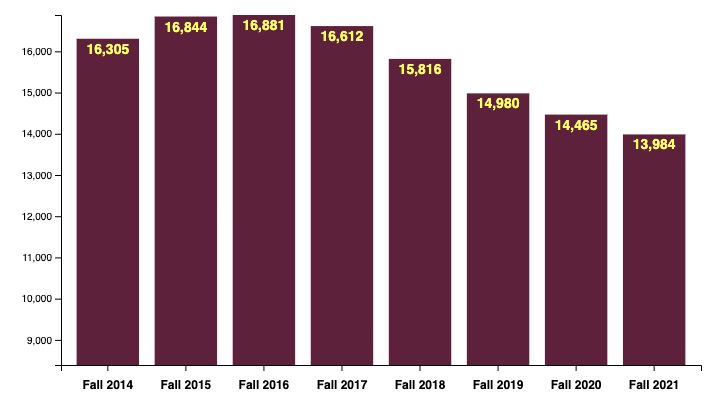RICHMOND, Ky. — After several years of declining enrollment, an increase is expected for the fall of 2022 semester at Eastern Kentucky University (EKU) as nearly 3,000 first-year and transfer students began moving in Wednesday, Aug. 10, on campus.
What You Need To Know
- Nearly 3,000 freshman, transfer students will arrive on campus this week
- Enrollment up slightly for first time in five years
- Parents, students praise streamlined move-in process
- More than half of EKU students live on campus
Torrential rain and lighting caused a temporary pause to the first day of students moving in on campus, but when the weather moved out, the move-ins resumed as student volunteers with large bins assisted.

The school’s streamlined efforts to lessen the stress and chaos associated with thousands of students moving into 12 dorms across the large campus did not go unnoticed.
Heather Bundy, of Owsley County, has a daughter attending EKU this semester. She said “the volunteers and staff did an excellent job welcoming and assisting with the move in,” while parent Jennifer Lippy said everything was “well-organized and ran smoothly” and thanked EKU for “making it so easy.”

The addition of on-campus living options and renovations of existing dorms, coupled with five consecutive years of decreased enrollment, has eliminated student housing shortages at EKU.
According to the EKU Office of Institutional Research, from 2016 to 2021, enrollment decreased from 16,881 to 13,984 students.
“Whether we are in a pandemic, we would like to see growth,” said Tanlee Wasson, EKU senior vice president for student success, engagement and opportunity about the toll COVID-19 took on the school’s enrollment numbers. “We understand the pathway education creates for the people of our service region and the Commonwealth. The more students we can educate and send back to serve their communities, the stronger we are as a region and state.”
Wasson said, however, EKU has seen an increase of students from service regions and underrepresented populations, with most EKU enrollees being from low-income areas or are first-generation students.

Wasson told campus newspaper the Eastern Progress that several factors contributed to the decrease in student enrollment over the past five years.
“Prior to the pandemic, the strong economy created more work opportunities that did not require an advanced education,” she said. “In recent years, there has also been a negative public and political discourse that has called into question the value of higher education, which has led to fewer people making the choice to earn their post-secondary degree. Finally, EKU serves some of the most economically disadvantaged counties in the country. Students from these backgrounds are very sensitive to changes in the cost of education. As state-level support has declined, all Kentucky institutions have implemented tuition and fee increases. Although EKU has held tuition flat three out of the last five years, minimal increases have been necessary as operational costs continue to rise.”
EKU focused on increasing access and affordability by keeping its BookSmart program in place, which offers free textbooks for all undergraduates, as well as maintaining the merit scholarship model, which does not require test scores to try and increase enrollment. Other efforts were virtual recruitment events and promoting its flat-rate tuition model to reach more out-of-state students.
Another recruiting tool implemented is EKU’s new data management system that allows for more effective communication with students, their families and high school personnel. Wasson said this software “enhances the incoming student experience and leads to more students seamlessly enrolling at EKU.”



